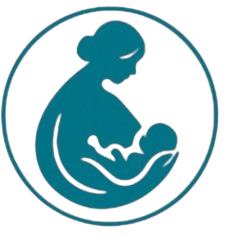1. Common Pediatric G.I. Conditions & Their Surgical Treatments
A. Congenital Gastrointestinal Disorders (Birth Defects)
- Tracheoesophageal Fistula (TEF) & Esophageal Atresia (EA)
- Problem: Abnormal connection (fistula) between the esophagus and trachea or incomplete esophageal formation.
- Treatment: Surgery to separate and reconstruct the esophagus.
- Congenital Diaphragmatic Hernia (CDH)
- Problem: Abdominal organs move into the chest due to a hole in the diaphragm.
- Treatment: Surgical repair to reposition organs and close the defect.
- Duodenal Atresia & Intestinal Atresia
- Problem: Narrowing/blockage of the small intestine, preventing food passage.
- Treatment: Surgical resection and anastomosis (joining of intestines).
- Hirschsprung’s Disease
- Problem: Lack of nerve cells in the colon, causing severe constipation.
- Treatment: Pull-through surgery to remove the affected bowel segment.
- Omphalocele & Gastroschisis
- Problem: Abdominal wall defects causing intestines/organs to be outside the body.
- Treatment: Surgery to place organs back and close the abdominal wall.
B. Acquired Gastrointestinal Disorders
- Hypertrophic Pyloric Stenosis
- Problem: Thickened pyloric muscle causing severe vomiting.
- Treatment: Pyloromyotomy (cutting the muscle to allow food passage).
- Appendicitis
- Problem: Inflammation of the appendix, leading to infection or rupture.
- Treatment: Appendectomy (removal of the appendix).
- Intussusception
- Problem: Telescoping of one part of the intestine into another, causing blockage.
- Treatment: Air/contrast enema or surgery if severe.
- Malrotation & Volvulus
- Problem: Abnormal intestinal positioning leading to twisting (volvulus).
- Treatment: Ladd’s procedure to untwist and secure the intestines.
- Gastroesophageal Reflux Disease (GERD)
- Problem: Acid reflux causing feeding difficulties and complications.
- Treatment: Nissen fundoplication (surgical wrapping of the stomach to prevent reflux).
- Necrotizing Enterocolitis (NEC)
- Problem: Severe inflammation and death of intestinal tissue in premature babies.
- Treatment: Surgery to remove dead bowel segments if perforation occurs.
2. Specialized Pediatric G.I. Surgical Techniques
- Minimally Invasive Surgery (MIS): Laparoscopic and robotic-assisted techniques for smaller incisions and quicker recovery.
- Endoscopic Procedures: Used for diagnostic and therapeutic interventions.
- Liver & Intestinal Transplant Surgery: In cases of liver failure or severe bowel disease.
3. Postoperative Care & Long-Term Management
- Nutritional Support: Some children need IV nutrition (TPN) post-surgery.
- Rehabilitation & Follow-up: Regular monitoring for growth and digestive function.


